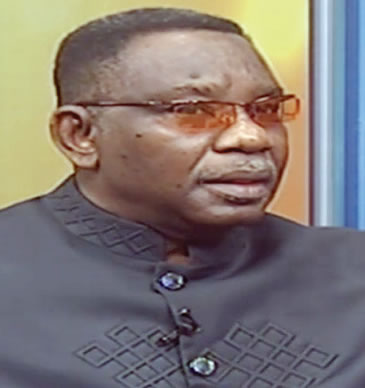Paragraph 1: The Exodus from PDP to ADC
A significant political realignment unfolded in Lagos State, Nigeria, as a wave of prominent members of the Peoples Democratic Party (PDP) announced their resignation and subsequent defection to the African Democratic Congress (ADC). Leading the exodus was Captain Tunji Shelle (Rtd.), a former chairman of the PDP in Lagos State. He was joined by a cohort of influential PDP figures, including a former Board of Trustees member, Dr. Abimbola Ogunkelu, and another former state chairman, Chief Muritala Ashorobi. The departing members also included Tai Benedict, a former Vice Chairman (Lagos East), Chief Niyi Adams, a former youth leader, and Rahman Owokoniran, a former South West Secretary. This mass defection signaled a considerable shift in the political landscape of Lagos, raising questions about the PDP’s future prospects in the state.
Paragraph 2: Disillusionment and Accusations within PDP
Captain Shelle attributed the mass defection to deep-seated dissatisfaction with the PDP’s internal dynamics. He cited “gross indiscipline and endless crises” within the party as the primary reasons for their departure. Shelle and the other defectors expressed disappointment with the PDP leadership’s perceived inability to address the disruptive actions of certain national figures within the party. Specifically, Shelle pointed fingers at Nyesom Wike, the Minister of the Federal Capital Territory and a prominent PDP member, accusing him of working against the party’s interests and aligning with the ruling All Progressives Congress (APC) while still maintaining his PDP membership. This accusation of dual loyalty added fuel to the fire of internal discord within the PDP.
Paragraph 3: Wike’s Alleged Role and PDP’s Vulnerability
Shelle’s accusations against Wike centered on allegations of undermining the PDP from within. He claimed that Wike was effectively holding the party hostage while simultaneously supporting the rival APC. Shelle expressed his unwillingness to tolerate such behavior, emphasizing his refusal to be subjected to what he perceived as manipulation and ridicule. He further suggested that the PDP leadership was compromised, implying a degree of complicity in Wike’s alleged actions. Shelle asserted that the departure of himself and other key figures had significantly weakened the PDP in Lagos, leaving the party vulnerable and depleted.
Paragraph 4: ADC: A Beacon of Hope and Stability?
In contrast to their negative portrayal of the PDP, the defectors painted a positive picture of the ADC, highlighting its potential as a viable alternative. Shelle emphasized the ADC’s strength and stability, noting the presence of experienced and trustworthy politicians within its ranks. He expressed confidence in the leadership of Senator David Mark, the ADC’s Interim Chairman, and Ogbeni Rauf Aregbesola, the National Secretary, portraying them as capable leaders who could steer the party towards success. Shelle praised the ADC’s internal cohesion, contrasting it with the perceived disarray within the PDP. He asserted that the ADC’s leaders were not easily swayed by external influences, suggesting a higher level of integrity within the party.
Paragraph 5: ADC’s Potential and Call for National Support
Shelle positioned the ADC as a party capable of addressing Nigeria’s challenges and fulfilling the aspirations of its citizens. He expressed optimism about the ADC’s growing popularity and urged Nigerians to join the movement. He emphasized the collective nature of their endeavor, stating that “people are behind us” and that they are not fighting alone. Shelle called for nationwide support for the ADC, portraying the party as a vehicle for positive change and a better future for Nigeria. This appeal for broader participation aimed to position the ADC as a truly national force with the potential to challenge the ruling APC.
Paragraph 6: Corroborating Voices and Claims of PDP’s Demise
Other prominent defectors echoed Shelle’s sentiments, further reinforcing the narrative of a declining PDP and a rising ADC. Rahman Owokoniran declared that the PDP had “lost track” and that the ADC presented the only viable opportunity to challenge the APC’s dominance. Tai Benedict, the former PDP Vice Chairman (Lagos East), claimed that more PDP members were preparing to join the ADC, suggesting an ongoing exodus from the former ruling party. Chief Niyi Adams, the former Lagos State PDP Youth Leader, asserted that over 5,000 PDP members had already defected to the ADC across the state’s 20 local government areas. He expressed skepticism about the PDP’s ability to resolve its internal conflicts, even after its upcoming national convention, further casting doubt on the party’s future prospects. These combined statements painted a picture of a PDP in disarray and an ADC poised to capitalize on its rival’s misfortunes.














